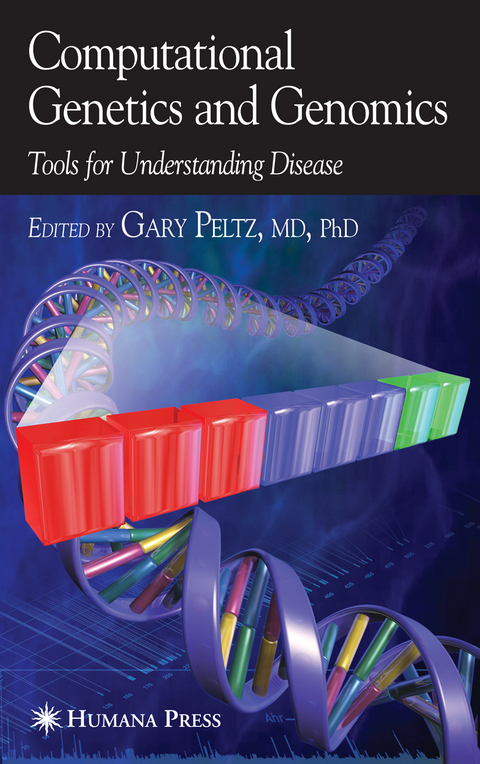
Computational Genetics and Genomics
Tools for Understanding Disease
Seiten
2005
Humana Press Inc. (Verlag)
978-1-58829-187-5 (ISBN)
Humana Press Inc. (Verlag)
978-1-58829-187-5 (ISBN)
Ultimately, the quality of the tools available for genetic analysis and experimental disease models will be assessed on the basis of whether they provide new information that generates novel treatments for human disease. In addition, the time frame in which genetic discoveries impact clinical practice is also an important dimension of how society assesses the results of the significant public financial investment in genetic research. Because of the investment and the increased expectation that new tre- ments will be found for common diseases, allowing decades to pass before basic discoveries are made and translated into new therapies is no longer acceptable. Computational Genetics and Genomics: Tools for Understanding Disease provides an overview and assessment of currently available and developing tools for genetic analysis. It is hoped that these new tools can be used to identify the genetic basis for susceptibility to disease. Although this very broad topic is addressed in many other books and journal articles, Computational Genetics and Genomics: Tools for Understanding Disease focuses on methods used for analyzing mouse genetic models of biomedically - portant traits. This volume aims to demonstrate that commonly used inbred mouse strains can be used to model virtually all human disea- related traits. Importantly, recently developed computational tools will enable the genetic basis for differences in disease-related traits to be rapidly identified using these inbred mouse strains. On average, a decade is required to carry out the development process required to demonstrate that a new disease treatment is beneficial.
Theory and Technical Concept.- Computational Biology.- Statistical Theory in QTL Mapping.- Haplotype-Based Computational Genetic Analysis In Mice.- Haplotype Structure of the Mouse Genome.- SNP Discovery and Genotyping.- Selected Examples: Murine Models of Human Disease.- Genetic and Genomic Approaches to Complex Lung Diseases Using Mouse Models.- Murine Models of Osteoporosis.- Murine Models of Substance and Alcohol Dependence.- Murine Models of Alcoholism.- Selected Examples: The Genetic Basis for Human Disease.- HLA Polymorphism and Disease Susceptibility.- Asthma Genetics.
| Erscheint lt. Verlag | 25.4.2005 |
|---|---|
| Zusatzinfo | X, 308 p. |
| Verlagsort | Totowa, NJ |
| Sprache | englisch |
| Maße | 155 x 235 mm |
| Themenwelt | Medizin / Pharmazie ► Medizinische Fachgebiete |
| Studium ► 2. Studienabschnitt (Klinik) ► Humangenetik | |
| Studium ► Querschnittsbereiche ► Epidemiologie / Med. Biometrie | |
| ISBN-10 | 1-58829-187-1 / 1588291871 |
| ISBN-13 | 978-1-58829-187-5 / 9781588291875 |
| Zustand | Neuware |
| Informationen gemäß Produktsicherheitsverordnung (GPSR) | |
| Haben Sie eine Frage zum Produkt? |
Mehr entdecken
aus dem Bereich
aus dem Bereich
Eine sehr persönliche Geschichte | Der New York Times-Bestseller
Buch | Softcover (2023)
Ullstein Taschenbuch Verlag
CHF 30,75
Die revolutionäre Medizin von morgen (Lifespan)
Buch | Softcover (2020)
DuMont Buchverlag
CHF 22,40
Buch | Softcover (2022)
John Wiley & Sons Inc (Verlag)
CHF 169,95


